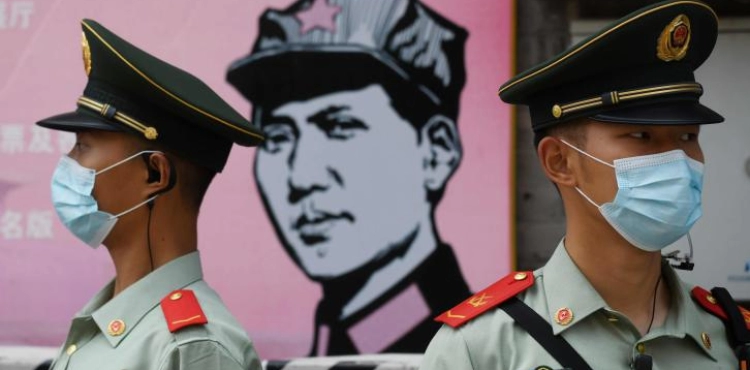China announced on Friday its victory over the emerging coronavirus, but the country in which it reported its first case of Covid-19 disease refused to set growth targets, declaring in return to constrict the opposition demanding democracy in Hong Hong.
After the Covid-19 End of 2019 appeared in Wuhan, President Xi Jinping´s regime succeeded in stopping the epidemic on his country´s territory while still spreading around the world, causing 330,000 deaths.
"We have achieved great strategic success in our treatment of the Covid-19 crisis," declared Prime Minister Li Kiqiang at the opening of the annual National People´s Assembly session, with a delay of two and a half months.
Beijing is proud of its authoritarian model that has succeeded in stopping the epidemic, at a time when Western countries are having difficulties controlling it. But it collides with Washington´s anger, which it accuses of delaying in moving to control the spread of the virus.
On Wednesday, US President Donald Trump declared angrily that "China is incompetent and nothing else caused this global mass killing!"
China is facing the first country in which the emerging Coronavirus spread and also the first that controlled it, now a "tremendous task" to move its economy amid a global recession, he told me before the 3,000 representatives gathered in the People´s Palace.
The Chinese Prime Minister acknowledged that "we have paid a heavy price" in our victory over the epidemic, in reference to the decline in gross domestic product in the first quarter (-6.8% in a precedent in the history of the People´s Republic). He explained, "The pressure on jobs has increased dramatically."
Evidence of the country’s ambiguity, Lee refused to set growth targets for this year, in a precedent in contemporary Chinese history.
He declared that "our country will witness some factors that are difficult to anticipate" while Europe and North America, the two main clients of China, face economic difficulties.
Given the global recession, it is expected that this year the deficit will reach 3.6% of GDP (compared to 2.8% last year).
The Prime Minister announced the issuance of a government loan of 128 billion euros, in addition to an investment plan of 481 billion euros.
The country has not set growth targets, but expects to increase its military spending this year by 6.6 percent, according to the Ministry of Finance. Evidence of economic hardship, this second budget in the world after the United States, increased less than last year (7.5%).
At a time when the world is preoccupied with the emerging coronavirus, Beijing plans to use its parliament session to impose its will on Hong Kong, which was rocked last year by a massive protest movement against the pro-Chinese local government.
A bill was introduced Friday to allow the central government to implement the Hong Kong´s "National Security Law" that Britain returned to China in 1997, without going through the local legislature.
On Thursday evening, a response was issued by the Democratic opposition in Hong Kong, as well as Washington, which warned Beijing against any law that "destabilizes".
Article 23 of the Basic Law, used two decades ago as a constitution for Hong Kong, stipulates that the region have a law prohibiting "treason, separation, rebellion and sabotage." But the clause was never applied because much of Hong Kong´s residents see this as a threat to their freedoms.
The last attempt to implement Article 23 in 2003 failed due to the massive demonstrations in the streets of Hong Kong.












